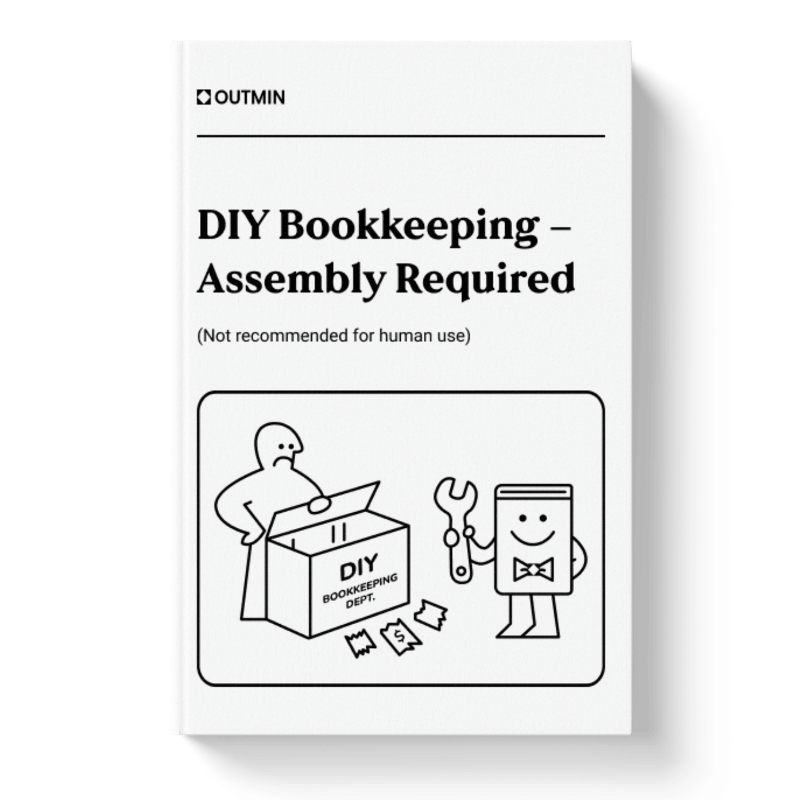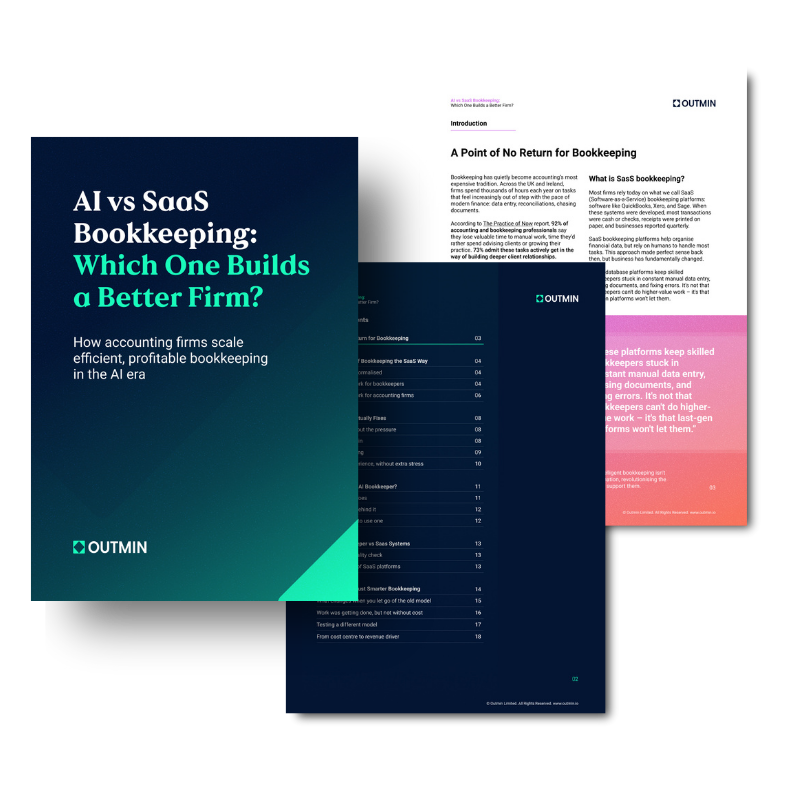July 8, 2024
Self-Employed Tax in Ireland

Everything You Need To Know about Tax for the Self-Employed in Ireland

[postdate] Facebook-f Twitter Linkedin-in [catslist] [postdate] Facebook-f Twitter Linkedin-in
Self-employment has many benefits, but it can take time to adjust. There are various new responsibilities, such as taxes, sales, daily operations, and keeping your customers happy. It’s quite different from being a pay-as-you-earn employee (PAYE), but don't worry, we’re here to help break it down.
Becoming self-employed doesn't have to be overwhelming. Continue reading to understand how to register as self-employed, set up self-assessment, and pay taxes! We’ll cover the following:
(Or, if you’d prefer to focus on running your business while experts handle the finances, get in touch with our team of accounting professionals at Outmin.)
What Is Self-Employment?
Being self-employed is also known as being a sole trader. Typically, it means you’ll run your own business – everything from sourcing clients to handling operations or fulfilling orders and generating revenue. If you’re a freelancer, you’ll also be considered as self-employed.
On the one hand, self-employment is great as you have the freedom to create your own schedule and don't have a boss to report to. However, it also means that you need to understand the tax system, manage risks, and often deal with paperwork.
What Are the Pros and Cons of Being Self-Employed?
In addition to not having a boss, being self-employed has many benefits:
- Flexibility: When you're self-employed, you have the freedom to make your own schedule and select the projects you want to work on. This may occasionally require longer hours, but you have the flexibility to take breaks without requesting time off formally.
- Greater control: You have complete control over your work-life balance, your career direction, and how you want to distribute the profits.
- Tax advantages: Self-employed individuals in Ireland have different tax benefits than employees, as they have more flexibility in claiming expenses. This allows for more opportunities for tax planning. Employees, on the one hand, may be able to get reimbursed for commute fees, while self-employed individuals consider their commute as a deductible expense.
- Financial potential: When working as an employee, the portion of revenue you receive is typically smaller than what you generate for the company. On the other hand, being self-employed offers the potential for greater financial rewards.
- Increased motivation: As the owner of your business, you have a vested interest in its success, which can be a great source of motivation.
However, being self-employed also comes with its challenges. One of the main difficulties is that income may not be consistent, particularly in the beginning stages. It is your responsibility to manage all aspects of your work, including accurately keeping track of your income and expenses. You must also stay up-to-date with your tax obligations and allocate funds to pay taxes, as self-employed individuals settle their income tax in one lump sum annually.
Of course, you can delegate the accounting tasks to financial experts, giving you more time to focus on managing and growing your business.
What Tax Do Self-Employed People Pay in Ireland?
You don’t have to worry about tax categorisation as an employee. However, as mentioned, the self-employed and sole traders are responsible for their tax obligations.
A few of the taxes you will come across when you become self-employed in Ireland include the following:
- Income Tax: You’ll pay income tax on your profits, depending on your income level. (Don’t forget to register with Revenue as self-employed and file an annual self-assessment or tax return.)
- Universal Social Charge (USC): USC is a tax that funds social welfare benefits. It is payable on your gross income after relief for most capital allowances. The rate of USC varies based on your income level.
- Pay-Related Social Insurance (PRSI): PRSI contributions provide access to certain social insurance benefits. Self-employed individuals pay Class S PRSI contributions. The rate is 4% of all income or €500, whichever is greater.
- Value Added Tax (VAT): If your annual turnover exceeds specific thresholds, you must register for VAT. The current thresholds are €75,000 for the supply of goods and €37,500 for the supply of services.
It's important to note that as a self-employed individual, you are responsible for registering with Revenue and keeping accurate records of your income and expenses. As with any business, you may need to prove your expenses, which means accurate record-keeping is a must!
When Must Self-Employed People Pay Taxes?
If you don’t pay taxes on time, you’ll risk penalties and interest on the payments, so jot down the following dates on your calendar:
- Preliminary Tax: Preliminary tax, which is an estimate of your income tax, PRSI, and USC, is due on or before 31st October each year.
- Income Tax Return: Your annual tax return for the previous year must be filed by 15th November if filing and paying through ROS or 31st October if submitting the documentation manually.
- Value Added Tax (VAT): If registered for VAT, you must file your VAT returns depending on your VAT filing frequency. For example, if you file your VAT returns bi-monthly, you’ll need to file them by the by the 23rd of the following month. Consult our guide on VAT Returns in Ireland for detailed information.
Now, this can be quite a lot to handle on your own. That’s why we recommend hiring an expert accountant as soon as possible. If you’re looking for a cost-effective option, Outmin combines AI for efficiency and human expert accountants to ensure you get the whole package for as little as €199 per month!
Incurring interest charges and penalties is not worth the trouble. Not when there’s a smoother way to run a business and stay on top of your tax obligations.
How to Pay Self-Employment Tax
Paying self-employment tax in Ireland involves registering as self-employed with Revenue and setting up self-assessment. Here's a step-by-step guide:
- Register as self-employed: You must register with Revenue as a self-employed individual using the Revenue Online Service (ROS). If you cannot register online, you can use the paper tax registration form TR1.
- Receive Notice of Registration: Once registered, you will receive a Notice of Registration confirming your registration for income tax and, if applicable, for VAT.
- Pay Preliminary Tax: Pay your preliminary tax on or before 31st October each year. This is an estimate of your income tax, PRSI, and USC due for the current year.
- Add Tax Credits you are eligible for: Taxpayers can lower your tax bill by claiming tax credits. It is worthwhile to investigate which tax credits you may be eligible for.
- File Annual Tax Return: File your annual tax return for the previous year by 31st October each year or 15th November if filing and paying through ROS.
- Keep accurate records: Keep detailed records of all your income and expenses, including invoices, receipts, bank statements, and other documentation.
- Consider getting help: If you're unsure about calculating and paying your taxes, get help from accountants or online accounting software like Outmin to ensure accurate filing.
Don’t Struggle with Your Taxes and Accounts - Get Help!
Figuring out taxes and managing your accounts as a self-employed individual can be overwhelming. And that's where Outmin comes in!
Outmin offers accounting services specifically designed for self-employed individuals and small businesses in Ireland. With our accountants’ expertise and user-friendly online software, you can streamline your processes, stay organised, ensure accurate filings, eliminate headaches – and much more.
Don't let tax obligations become a burden – if you need help, Outmin is here to assist you every step of the way.
Related Articles
More Articles [am_post_grid pagination_type="none" posts_per_page="3"]









